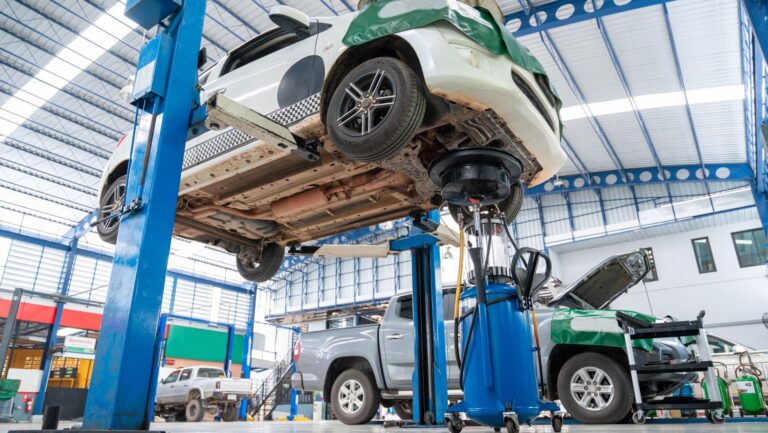People who purchase vehicles must handle multiple expenses and unexpected car repairs become problematic when prepared funds are missing. Unanticipated repairs of engines and transmissions and electrical faults have a way of causing extensive repair charges to accumulate rapidly. Drivers commonly discover they are unprepared for big repair bills after which they experience financial strain or need credit to handle the expenses. Having money saved beforehand reduces the monetary burden caused by unpredicted expenses.
The purpose of responsible proactive planning for car repair funds is to have accessible money when the need arises. Proper financial planning alongside prediction of repair expenses enables drivers to escape undesirable money problems. The combination of advance financial planning brings security together with prompt repair maintenance so the vehicle avoids unnecessary downtime.
Estimating Potential Car Repair Costs
The evaluation of typical repair expenses enables homeowners to establish their savings amount. The most inexpensive maintenance pieces such as brake replacements and battery changes and tire replacements cost less money while large engine and transmission services tend to be significantly more expensive. The state of a vehicle combined with its age limits the cost of future maintenance and needs additional attention.
Knowledge about upcoming expenses comes from checking maintenance documents and discussing with trusted experts in car mechanics. Understanding future repair expenses requires observation of repair costs from vehicles with similar characteristics. By including these costs in calculations people who own cars can establish sensible financial targets aimed at funding potential breakdowns.
Setting Up a Car Repair Savings Fund
A special account dedicated to car repair expenditures ensures that vehicle maintenance funds will be accessible upon need. The separation of this fund from regular savings accounts helps car owners avoid making withdrawals for different purposes. Regular low-level contributions let people build wealth that protects them during unanticipated repair situations.

The creation of automatic monthly transfers between different accounts helps maintain saving consistency. Regular small payments will accumulate through time to produce significant value during a repair situation. The budget should include this savings fund as a mandatory account to prevent car purchases from creating financial stress.
Reducing Expenses to Boost Savings
A car repair fund can receive more contributions by reducing expenses that serve no useful purpose. Regular reviews of monthly expenses enable people to find ways they can save more money by cutting dining out and entertainment activities. The practice of minor changes in daily spending allows people to accumulate money for vehicle maintenance needs.
The process of saving money by seizing cost-effective options for car-related costs will benefit budget control. The combination of selecting affordable car insurance Ontario providers with proper tire maintenance and regular vehicle inspections results in decreased automobile costs. Excess savings enable the transfer of resources into the repair fund making sure money will be accessible during emergencies.
Planning for Emergency Repairs Without Disrupting the Budget
Car repairs which emerge unexpectedly require a plan because they could otherwise create financial difficulties for vehicle owners. When a major car issue emerges before the relevant repair fund reaches its build-up phase organizations should have alternative financing approaches available to sustain their overall budget. A credit card or personal loan might help in such situations although improper management could result in accumulating debts.

The search for payment plans through mechanics and auto shops helps customers manage extensive automotive repair expenses. Repair shops enable their clients to choose payment plans that split the expense into installments. Emergency repairs become more manageable through the combination of currently available savings with reasonable payment arrangements that support financial goal achievement.
Keeping the Vehicle Well Maintained to Prevent Costly Repairs
Vehicle maintenance performed proactively remains the most reliable way to stop repair expenses from becoming both unpredictable and expensive. Scheduled inspections of oil and brake systems alongside fluid tests will identify minor problems in time to prevent significant issues from developing. Routine maintenance trackment allows vehicle owners to prevent major financial devastation which results from unforeseen breakdowns.
Small resolutions of mechanical issues right after they occur together with following manufacturer-recommended maintenance timelines will contribute to vehicle longevity and minimize total repair expenses. The car maintains higher value along with avoiding high-maintenance expenses because it remains well-maintained. Processing regular maintenance means preventive costs stay affordable as well as foreseeable.
Conclusion
Transforming money for inevitable unscheduled car maintenance into a necessary aspect of accountable vehicle ownership. The financial readiness of vehicle owners depends on proper cost projection for vehicle maintenance together with fund establishment and expense reduction. The combination of emergency plan creation and scheduled maintenance operations deduces financial pressure from unexpected repair costs. Automobile owners who establish this precautionary fund will shield themselves financially from unexpected repair bills while maintaining their vehicles at optimal condition.




